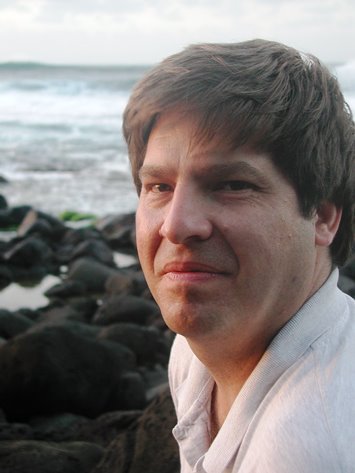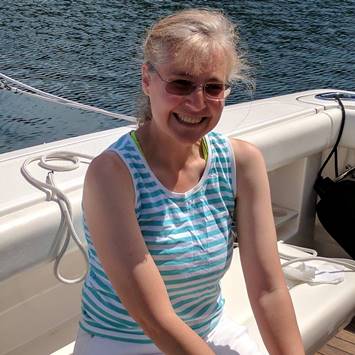–by Susan McBain, Orcas Issues reporter —
If you’re a research professional looking for a perfect place to settle, what do you do?
“Research,” says Steve Smith, who with his wife Jennifer moved to Orcas from Nebraska almost four years ago. The pair decided on their criteria for a new place to live, did a lot of research, then visited their top ten choices. “We decided this was the one, and here we are,” says Jennifer.
The couple immediately set out to do what they enjoy: getting to know the community and determining how their research skills could be of benefit. They got involved with the Eastsound Vision Survey, a complement to the Vision Statement in San Juan County’s Comprehensive Plan update. The Eastsound Vision Survey was designed to get the community’s input on a detailed, specific set of development actions that might be taken within the Eastsound Urban Growth Area.
“Generally, not many people attend meetings or hearings on development issues. And phone surveys are getting much harder to do. So we were looking for a way to engage the public at large,” says Steve. Despite the length of the survey, 388 people completed it. (Results are at https://eastsoundvision.com/).
Encouraged by the response, Steve and Jennifer started Madrona Voices in January of this year. Their first endeavor was a five-minute survey about the proposed Public Hospital District (PHD) on Orcas Island, which asked respondents questions such as how they intended to vote on the measure, what their biggest concerns were, and their expectations about costs. (Results are at https://www.madronavoices.com/).
“We were shocked at the response to our email announcing the survey,” says Steve. “Within 5 minutes, 50 people answered the entire survey; within 10 minutes, 100 people; and within 6 hours, 300 people. That tells us that people do want to have their opinions known, whether they come to meetings or not.”
More than 750 people completed the survey, 700 of them on-island voters. About 62% said they planned to vote for PHD, about 30% were undecided, and about 7% planned to vote no. “The comments in particular were fascinating,” says Steve. “Even those who plan to vote yes still have concerns, mainly about what the commissioners will do once elected. Most people, of all ages and asset levels, want the measure to pass. Most people want both existing clinics supported, no matter which one they use (if either).”
“What we hope is that we can use this methodology to assess the community’s responses on important issues in the future. We did various analyses of the results of the PHD survey to see how well our group of respondents reflected the community as a whole, in terms of things like age, income, and owners versus renters. We think the group is very representative of the whole community, although we’d like to have more respondents under age 25.” (To join the mailing list, visit https://www.madronavoices.com/).
Madrona Voices will do another survey shortly before the election on April 24, to ask if opinions have changed and what questions respondents still have. If voters approve the PHD, future surveys could explore what services people want and what they are willing to pay for them.
Steve continues, “We’re also posting other information on the website. For instance, we had a two-hour conversation with Debra Gussin, executive director of UW Neighborhood Clinics, in which she and her team answered a lot of our questions. We were also able to listen to UW’s meeting with the commissioner candidates, who also had a lot of questions. Our notes on both those meetings will be going up on the Madrona Voices website soon.”
“Dr. Shinstrom has also agreed to answer some questions, and we will sit down with him this week. We will share those as soon as we can.”
**If you are reading theOrcasonian for free, thank your fellow islanders. If you would like to support theOrcasonian CLICK HERE to set your modestly-priced, voluntary subscription. Otherwise, no worries; we’re happy to share with you.**









